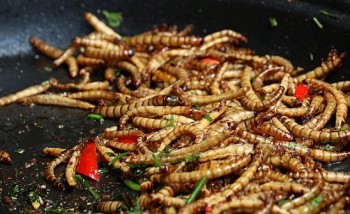Edible Insects: Sustainable nutrient-rich foods to tackle food insecurity and malnutrition
Abstract
The COVID-19 pandemic, global climate change, and a fast-growing human population have been reported to be leading millions into food insecurity. According to an FAO report, in 2020 over 811 million people were undernourished with 418 million in Asia, 282 million in Africa and 60 million in Latin America and the Caribbean. The world is off-track in ending hunger and improving nutrition, targets set by the United Nations (UN), to be achieved by 2030. The promotion of sustainable food sources such as entomophagy can help to deliver sustainable nutrition to many populations to reach the aforementioned UN targets. This narrative review explores the existing evidence around the use of edible insects to address food insecurity and malnutrition, including health, social and environmental benefits. For example, the house cricket (Acheta domesticus) provides on the order of three times as much energy, protein, and iron as an equal amount of beef or chicken and, unlike them, is an excellent source of calcium. An effective decontamination technique (to address safety issues such as allergens and pathogens) is required to produce edible insect powder. Insect powder can be used to effectively fortify conventional food products with iron, zinc, calcium and dietary fibre, which are often difficult to obtain in adequate amounts in many common dietary regimes, especially in low-income circumstances. In communities where the consumption of insects is already culturally accepted, promotion of their consumption could also help address chronic diseases related to poor diets such as type 2 diabetes. In addition to their high nutrient content, many edible insects provide anti-inflammatory factors. Supporting the harvesting and even rearing of edible insects could generate increased income from selling them in local markets.

Authors retain all copyrights. In making a submission to World Nutrition, they are certifying that all material is theirs except quotations, as indicated, and that they have obtained permission for any photos, tables, or graphics taken from other publications or websites.




